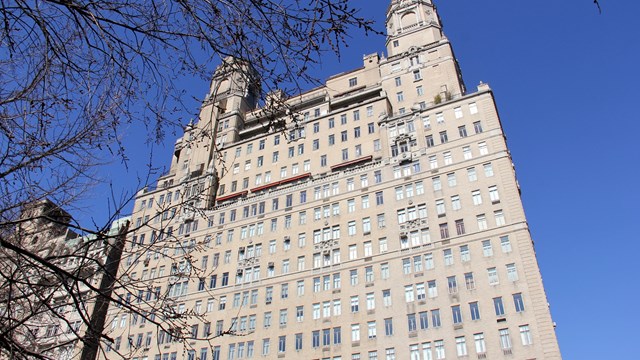
New York City Mayor Bill de Blasio's recent comments about private property rights have raised some eyebrows, both in the media and especially the real estate industry.
In an interview with New York Magazine, de Blasio--who is running for re-election and has made the issue of affordable housing a prominent part of his agenda--commented about how private property has posed a challenge when it comes to income equality. He argued that city government should exercise greater involvement in areas of development:
"I think people all over this city, of every background, would like to have the city government be able to determine which building goes where, how high it will be, who gets to live in it, what the rent will be. I think there’s a socialistic impulse, which I hear every day, in every kind of community, that they would like things to be planned in accordance to their needs. And I would, too. Unfortunately, what stands in the way of that is hundreds of years of history that have elevated property rights and wealth to the point that that’s the reality that calls the tune on a lot of development.
"Look, if I had my druthers, the city government would determine every single plot of land, how development would proceed. And there would be very stringent requirements around income levels and rents. That’s a world I’d love to see, and I think what we have, in this city at least, are people who would love to have the New Deal back, on one level. They’d love to have a very, very powerful government, including a federal government, involved in directly addressing their day-to-day reality."
The mayor's comments drew media attention, from the conservative publication The Weekly Standard, whose headline read: “Bill de Blasio Sure Sounds Like a Communist,” to the New York Post, with Steve Cuozzo writing: “Each and every time the city sets out to tinker with neighborhood density, building sizes and shapes and permissible uses, 'the people' recoil and revolt.”
De Blasio's New York Magazine comments also prompted some in real estate to chime in as well. One unidentified executive told The Real Deal, “He [de Blasio] didn’t stop at Bernie Sanders, he went straight to Chairman Mao.” Meanwhile, a developer surmised that the mayor made those remarks to deflate scrutiny over his relationship with the real estate industry. “I think it was just to appease people who thought he’d been influenced too much by developers,” the source, who chose to remain anonymous, said to The Real Deal. “It’s not something that’s practical or would ever happen.”
In a mayoral debate from last month, de Blasio's then-Democratic challenger, ex-Brooklyn Councilman Sal Albanese, accused the mayor of having “turned the city over to big developers," Crain's New York Business reported. Albanese also referenced the government probes about campaign donations linked to de Blasio that have since been closed. De Blasio criticized Albanese's assertions, saying they were not issues affecting everyday New Yorkers.
As for de Blasio's New York Magazine remarks, Melissa Grace, a spokesman for the mayor, responded, as quoted by The Real Deal:“He is a firm believer—as is the entire administration—in securing the maximum benefit for the public in every aspect of our housing strategy.”
David Chiu is Associate Editor of The Cooperator.






Leave a Comment